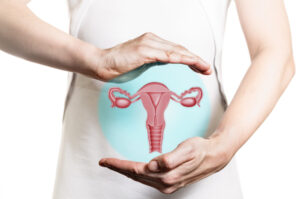The ovaries are crucial organs in the female reproductive system, responsible for producing eggs and secreting hormones like estrogen and progesterone. Ovarian health plays a significant role not only in fertility but also in overall well-being. Maintaining healthy ovaries is essential, as they are connected to hormonal balance, menstrual cycles, and various bodily functions. Unfortunately, factors like lifestyle choices, age, and certain medical conditions can affect ovarian health. Fortunately, there are steps you can take to protect your ovaries and promote long-term health.
Why Ovarian Health is Important
Ovarian health directly impacts fertility, menstrual regularity, and hormone production. Healthy ovaries allow a woman to conceive, while imbalances can lead to conditions like polycystic ovary syndrome (PCOS), premature ovarian failure, and even ovarian cancer. Additionally, the ovaries produce hormones that affect bone health, skin, mood, and overall metabolism. Therefore, taking care of ovarian health is not just important for fertility but for overall wellness.
Common Threats to Ovarian Health
Several factors can impact ovarian health, including:
- Age: As women age, the quality and number of eggs in the ovaries naturally decline, leading to reduced fertility and possible early menopause.
- Hormonal Imbalances: Conditions such as polycystic ovary syndrome (PCOS) or endometriosis can disrupt hormone levels and affect ovarian function.
- Smoking: Smoking has been linked to early menopause and decreased ovarian reserve, making it harder to conceive.
- Obesity and Poor Diet: Excess weight can disrupt hormone levels and increase the risk of conditions like PCOS and ovarian cysts.
- Infections and Inflammation: Pelvic infections or sexually transmitted infections (STIs) can damage the ovaries and affect fertility.
- Genetic Factors: Family history plays a role in ovarian health. Certain genetic conditions, such as Turner syndrome, can cause early ovarian failure.
- Chemotherapy and Radiation: Cancer treatments can damage the ovaries and may lead to infertility or early menopause.
How to Protect Your Ovarian Health
While some factors, like age and genetics, are beyond your control, there are several proactive steps you can take to protect and promote ovarian health.
1. Maintain a Healthy Diet
A balanced diet rich in vitamins, minerals, and antioxidants supports overall health, including ovarian function. Foods high in folic acid, such as leafy greens, citrus fruits, and legumes, can help maintain healthy ovarian function. Omega-3 fatty acids, found in fish like salmon and flaxseeds, also play a role in hormone production and can reduce inflammation. Additionally, foods rich in antioxidants, like berries and nuts, help protect the ovaries from oxidative stress and free radical damage.
2. Stay Active
Regular physical activity is essential for overall health and hormonal balance. Exercise helps maintain a healthy weight, reduce inflammation, and improve blood circulation, all of which are important for ovarian health. However, it’s crucial to strike a balance – excessive exercise or very low body fat can sometimes disrupt hormone levels and menstrual cycles. Aim for a moderate exercise routine that promotes general well-being.
3. Avoid Smoking and Limit Alcohol Consumption
Smoking is one of the biggest threats to ovarian health. It can reduce the ovarian reserve (the number of eggs left in the ovaries) and increase the risk of early menopause. In addition, smoking can also increase the risk of ovarian cancer. If you smoke, quitting is one of the most beneficial steps you can take for your reproductive health. Limiting alcohol intake is also important, as excessive drinking can disrupt hormone levels and affect fertility.
4. Manage Stress
Chronic stress can negatively affect the body’s hormone levels, including those that regulate ovarian function. High stress levels can contribute to irregular menstrual cycles and may even affect fertility. Engaging in relaxation techniques such as yoga, meditation, deep breathing exercises, or simply taking time for self-care can help lower stress and support ovarian health.
5. Maintain a Healthy Weight
Being overweight or underweight can disrupt the hormonal balance, leading to conditions like PCOS or an irregular menstrual cycle. If you are overweight, losing weight in a healthy way can improve ovarian function and reduce the risk of related conditions. Conversely, maintaining a healthy weight and avoiding extreme diets can support regular hormone production and menstrual health.
6. Protect Your Ovaries from Infections
Pelvic infections and sexually transmitted infections (STIs) can damage the ovaries and lead to long-term health issues. Practice safe sex by using condoms to reduce the risk of STIs, and seek medical attention if you suspect an infection. Regular gynecological check-ups can also help monitor your reproductive health and detect any infections early.
7. Monitor Hormonal Health
Conditions like PCOS, endometriosis, and other hormonal disorders can impact ovarian function. Regular visits to a gynecologist or reproductive specialist can help detect early signs of these conditions, allowing for early intervention. If you experience irregular periods, heavy bleeding, or other unusual symptoms, don’t hesitate to seek medical advice.
Learn more about hormonal imbalance here.
8. Consider Fertility Preservation
For women who are concerned about their future fertility or those undergoing medical treatments like chemotherapy, fertility preservation options such as egg freezing can be considered. Freezing eggs allows you to preserve your ovarian reserve for potential future use, especially in cases where ovarian health may be compromised due to treatments or age.
9. Regular Check-ups
Regular gynecological exams are essential for maintaining ovarian health. These exams can help detect potential issues like ovarian cysts, fibroids, or early signs of ovarian cancer. An ultrasound or blood tests can provide valuable insights into ovarian function, ensuring that any problems are addressed promptly.
Conclusion
Protecting ovarian health is a crucial aspect of overall well-being, particularly for women who wish to maintain fertility and hormonal balance throughout their lives. While some factors are beyond control, adopting a healthy lifestyle, managing stress, avoiding harmful substances, and staying proactive with regular check-ups can significantly improve ovarian health. By taking these steps, women can better ensure that their ovaries remain healthy, supporting not just reproductive health but overall vitality and quality of life.
Return to homepage!

